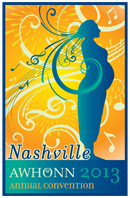Baby Steps: One Hospital's Quest to Improve Its Breastfeeding Practices
Title: Baby Steps: One Hospital's Quest to Improve Its Breastfeeding Practices
- Describe strategies hospitals can take to improve breastfeeding practices.
- Identify potential barriers for hospitals in implementing the necessary steps to be certified Baby-Friendly.
- Propose methods hospitals can utilize to overcome barriers to Baby-Friendly breastfeeding practices.
Although numerous research studies show the positive impact of the UNICEF/WHO Baby-Friendly Hospital Initiative on breastfeeding rates, only 143 hospitals in the U.S. have undertaken the necessary steps to become Baby-Friendly. In the current economic climate, hospitals may be concerned about potential costs including refusing free formula, and others may face cultural or institutional barriers to full implementation.
In 2011, Huntsville Hospital for Women & Children began an initiative to improve its breastfeeding practices. Alabama has the fourth lowest breastfeeding rate in the nation, with less than 60% of babies ever having breastfed. At Huntsville Hospital, about three-fourths of women intend to breastfeed (similar to the national rate.) In order to support these mothers, hospital leaders decided to advance breastfeeding practices to be in line with the Baby-Friendly Hospital Initiative and evidence-based practice.
Proposed change:
Using the Baby-Friendly steps as guidelines, a committee of interested staff and leaders from the postpartum unit planned and implemented a series of interventions focused on breastfeeding.
Implementation, outcomes and evaluation:
Staff members were first surveyed about breastfeeding knowledge and education ability. Survey data were used to create a mandatory full-day course for all unit nurses, focusing on areas where staff needed further education.
Additional steps undertaken by the unit included replacing formula company patient discharge bags with bags with the hospital logo, increasing lactation consultant hours on the unit, creation of a unit-specific breastfeeding booklet for staff, changing the infants’ intake/output sheet to include breastfeeding education for parents, and not giving pacifiers out unless specifically requested by parents.
Preliminary data indicate that breastfeeding course objectives were met and patient satisfaction scores related to breastfeeding assistance are high. Despite the hospital’s initial successes, it still faces many challenges in its quest to implement all ten steps of Baby-Friendly Hospitals. In a state with traditionally low breastfeeding rates, barriers include getting families to room-in with infants, encouraging physicians’ infant assessments and other interventions to be done in patient rooms, increasing funding for lactation consultants at night and on weekends, looking at ways for C-section mothers to breastfeed their babies within one hour, and implementing breastfeeding support groups.
Implications for nursing practice:
Increased staff knowledge, high patient satisfaction scores, and movement toward compliance with the Baby-Friendly Hospital Ten Steps are all positive signs of improved breastfeeding practices at Huntsville Hospital. Other hospitals wanting to work toward Baby-Friendly practices can learn from Huntsville’s successes and continued challenges in improving its breastfeeding policies and practices.
Keywords:
Breastfeeding, Baby-Friendly, Patient Education

